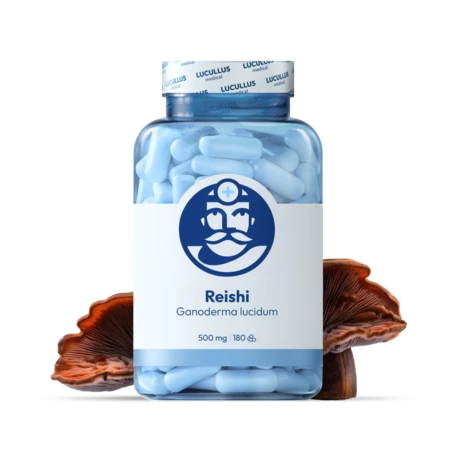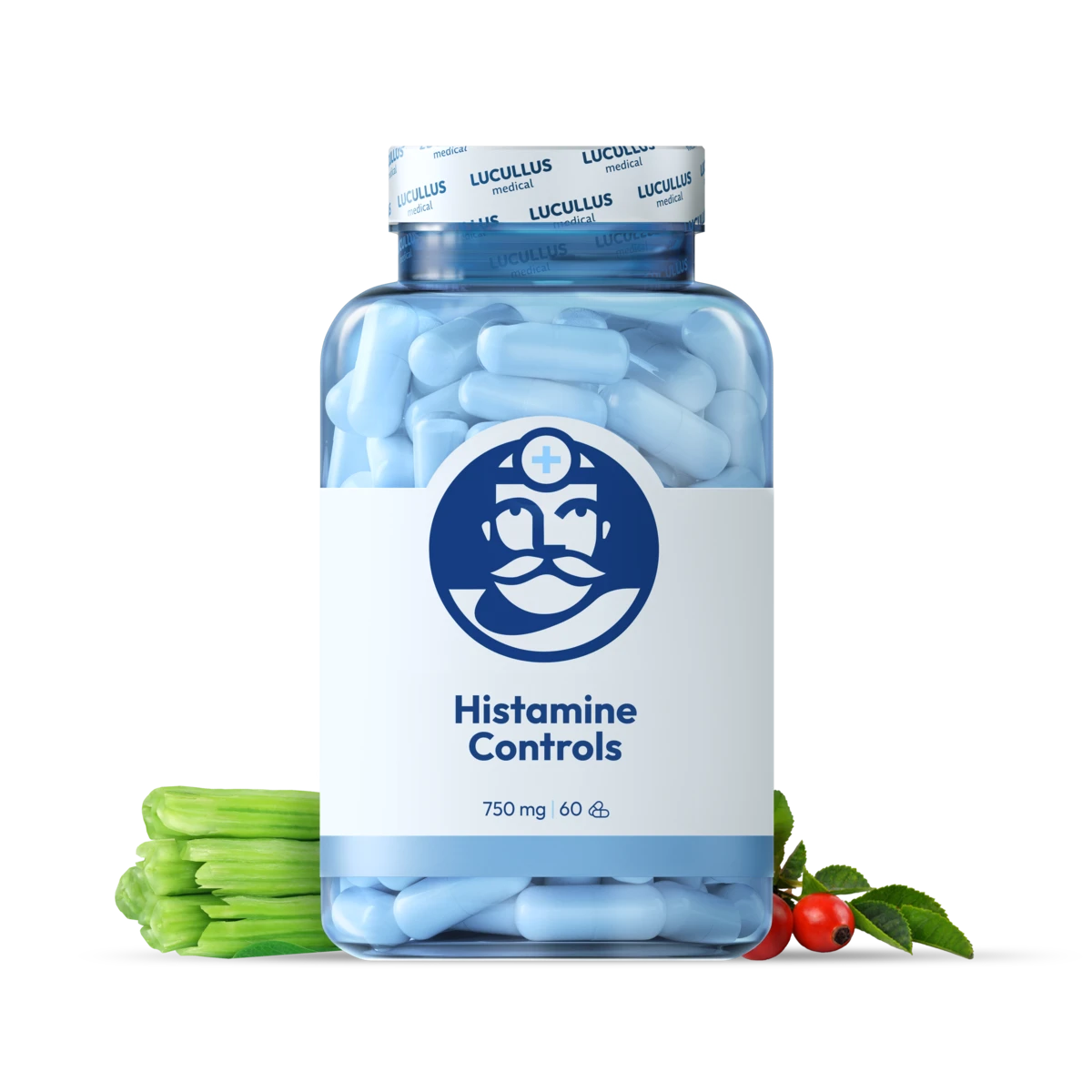
Histamine Control
Histamine is often perceived negatively, especially for its role in allergic reactions and intolerance. As with many things in life, black-and-white thinking is not suitable for this biogenic amine. As a neurotransmitter, it participates in many critical processes. In defending the body, for example, it supports the enlargement of blood vessels, making it easier for immune cells to access the site of inflammation. At the same time, it stimulates the production of gastric juices (essential for food processing), regulates the sleep cycle, controls appetite, and plays a role in learning, memory, and emotions. Histamine naturally occurs in the human body, and its balance is crucial for health. In the digestive system, it's broken down by the enzyme diamine oxidase. However, if histamine intake is greater than the body can break down, histamine intolerance develops. This imbalance can be caused by stress, poor lifestyle, medicines, or other factors. Excess histamine can lead to unpleasant symptoms, often resembling food allergies or digestive issues. It's essential to understand histamine as an important helper in our body.

Surprisingly Resilient Maca - Peruvian Cress
This remarkable plant (Lepidium mayenii) from the Peruvian Andes, where it is grown at extreme altitudes (4000 m a.s.l.). It is incredibly resilient and can survive and grow in conditions where most other plant species would not survive, such as low temperatures, strong winds, and intense UV radiation. Its ability to adapt to harsh environments enriches it with nutrients and substances that positively impact the human body, enhancing resistance to both physical and mental stress.

Cordyceps sinensis with an incredible life cycle
Have you heard about this fascinating fungus with its peculiar appearance and way of existence? The names „Chinese caterpillar, Himalayan gold or mushroom of longevity“ do not reveal much ...

Je Kolagén len pre starých ľudí?
Kolagén je v podstate bielkovina, ktorú si ľudské telo dokáže vyrobiť samo, pretože ju nutne pre správne fungovanie chrupaviek, žliaz, kĺbov, ale aj kostí, svalov a pokožky. Zo všetkého v našom tele, je všetko práve najviac (až 3 %). Pokiaľ nie ste na sociálnych sieťach, potrebujete naozaj závisieť, až kým vás nezačnete zrazu pobolievať šľachy, kolená, väzivá... Pokiaľ máte správne, vyvážené stravovanie, dostatok pohybu, vaše telo by ste si ho málo vytvorili. Lenže...

... aby ste sa cítili vo svojom tele spokojne a šťastne
Prečo práve došlo + C + kyselina hyalurónová ? Stručne povedané, ide o elixír mladosti , ten presne charakterizuje 3 silných antioxidantov. Vzájomným prepojením zložiek sa zvyšuje podpora zdravia a nielen pleti (ako sa môže zdať). Už v mladosti sa zvyšuje množstvo kyseliny hyalurónovej odstrániť . Týmto triom pomôžeme bezpečne doplniť a zlepšiť zdravú pokožku tváre, kosti, kĺbov, žily, pevné a pevné. Vitamín je potrebný pre biosyntézu C (aj premenu ) a efektívnu využiteľnosť. Rozoberieme si to na drobné, pretože aj tu platí doslovne, že všetko tak všetkým súvisí...

Sú dni, kedy aj ženy potrebujú nájsť rovnováhu ...
V naturálnom doplnku je ukrytá menej známa rastlina diskórea huňatá ( Discorea villosa, Wild yam) z čeľade Dioscoreaceae. Poďme sa s ňou zoznámiť ☺ Existuje viac ako 600 druhov rastlín yam, najvýraznejší druh je divoký yam (Dioscorea villosa). Táto trvá nenáročná liana (vinič) rovníkových oblastí, má listy v tvare srdca. V listoch a koreňoch je prítomný diosgenín (primárna zložka), práve koreň sa používa v medicíne aj v našich doplnkoch, ako koncentrovaný extrakt (najvyššia výťažnosť), štruktúra je podobný cholesterol. Táto látka sa používala na výrobu prvých antikoncepčných podkladov.






























